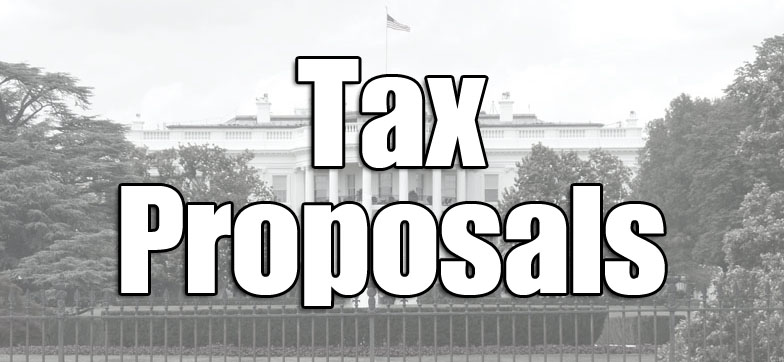Candidate Tax Policy Proposals

Against the backdrop of the economic turmoil created by the COVID-19 pandemic and the enactment of Republican-only tax reform in 2017, tax policy will be a critical point of differentiation in the 2020 presidential race.
Below is a summary of the key tax law changes each candidate is suggesting.1
| Item | Present Law | Biden | Trump |
| Business | 21% corporate rate20% pass-through deduction for QBI
Territorial style regime with BEAT, 10.5% GILTI rate |
28% corporate rate
Repeal 20% pass-through deduction for QBI for taxpayers >$400K in income and for REIT dividends Double GILTI rate 15% minimum global book income tax Repeal like-kind exchange deferral for real estate 6.2% payroll tax increase on employee wages over $400K |
Make 20% pass-through deduction permanent |
| Payroll/Self-employment | 6.2% on wages up to $137,700 & 1.5% Medicare (both employer and employee)
0.9% Medicare >$250K MFJ/$200K (employee only) |
Impose 6.2% tax on wages >$400K (both employer and employee), wages between $137,700 and $400,000 not taxed | Supports temporary payroll tax holiday as pandemic relief |
| Individual Income Tax | 37% maximum rate through 2025, reverts to 39.6% | 39.6% maximum rate | Make 37% rate and other TCJA changes permanent |
| Investment Income | 20% maximum capital gains rate
3.8% net investment income tax |
No preferential rate for capital gains for taxpayers over a $1 million income thresholdNo financial transactions tax | Supports indexing capital gains for inflation, further reducing the rate from the current 20% maximum |
| Estate & Gift Tax | Top rate of 40% with exemption of $11.58 million through 2025, reverts to $5 million (indexed from 2011) | Return to “historic norm”, perhaps this means restoring the $3.5 million exemptionEliminate the step-up in basis for inherited assets | Make TCJA changes permanent |
| Wealth Tax | None | No proposal | No proposal |
In these tumultuous times it’s difficult to predict what policy initiatives the winner of the 2020 presidential election is likely to pursue. However, given the backdrop of the economic devastation, it seems certain that tax policy will take center stage. Should Democrats win the White House as well as the House and Senate, the enactment of tax changes in 2021 is highly likely. As tax changes aren’t typically retroactive, the changes likely wouldn’t be effective until 2022. Republicans in 2017 demonstrated how highly partisan tax legislation could be passed even with a slim majority in the Senate through a budget reconciliation process that bypasses the 60-vote filibuster threat. Democrats are floating whether the filibuster rule should be eliminated entirely. The tax changes on the table are sweeping in nature, and it’s never too early for you to prepare.
- https://www.wealthmanagement.com/high-net-worth/biden-hits-campaign-trail-tax-policy-proposals
